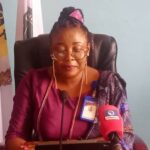Recently, a N6.4 billion fraud was uncovered in the 13 local government areas of Nasarawa State. The Commissioner for Local Government, Community Development and Chieftaincy Affairs, Yusuf Turaki, alleged that the fraud was perpetrated by accounting officers.
He said, “Preliminary report by a seven-man committee set up by Governor Abdullahi Sule to look into the persistent shortfall in salaries of local government workers in the state since 2012 indicates that directors of finance could not account for over N600 million excess fund after payment of monthly salaries.
“As at October 2020, salaries of local government workers stood at N700m as against N1.1bn and N1.6bn between April 2012 and 2020, even though there was no employment of new workers.’’
The state government had directed directors of personnel management and finance, as well as accountants of all the 13 local government councils and development areas to proceed on a three-month suspension following the alleged fraud. The action was to pave way for seamless investigation.
Speaking on the matter, a former attorney-general and commissioner for justice in the state, Yusuf Shehu Usman, a lawyer, said, “Governor Abdullahi Sule did not breach any law over the suspension of directors of finance and personnel management across the 13 local governments in the state.
“This clarification has become necessary because there was a question on whether the governor has the power to suspend officers of local governments without seeking and obtaining the approval of the state House of Assembly, especially in view of section 7 of the 1999 Constitution of the Federal Republic of Nigeria (as amended).
“These are, no doubt, very weighty issues that require legal consideration. It is, therefore, pertinent to state that under the constitution, the governor lacks the power to dissolve or sack members of local government councils. This is beyond argument.
“This is simply because the local government councils are legally constituted and the members are duly elected, just like the governor and members of the House of Assembly.
“It must, however, be understood and appreciated that there is a difference between elected members of the local government councils and employees. In this regard, the chairman and councillors constitute what in law is known as the Local Government Council.
Directors of finance and personnel management and other members of staff of local government councils are employees. They owe their appointments to the Local Government Service Commission (LGSC), which is indeed part of the executive structure of the government.’’
He further explained, “The Local Government Service Commission, by law, has the power to employ, discipline and sack any employee of a council.
The governor very convincingly explained that the directors of finance and personnel management were not suspended by him but their employer, the LGSC.
I am not sure that anybody who knows the law that established the LGSC would seriously contest its power to suspend or even sack the directors. It is within their mandate.
It is, therefore, very clear that the governor of Nasarawa State has not violated any provision of the constitution by announcing the suspension of the directors after the Local Government Service Commission effected it.’’

He also called for the scraping of development areas in the state, saying that’s the reason local governments are not viable.
He further said the development areas were not recognised by the constitution, and therefore, not provided for in the Federal Revenue Allocation formula for federal, state and local governments.
According to him, the development areas have employed the same number of staff (if not more) as the local governments, as well as duplicated their structures and functions. They, therefore, amount to a burden for the state government as they are financed by the paltry allocation meant for local governments.
“If we would be sincere with ourselves, how do we expect the local governments to survive, pay multiple salaries and execute development projects at the grassroots level with this calamitous funding arrangement?’’ He asked.
He said the local government system may crash under the heavy burden of catering for the development areas.
“Just look at the number of political appointees and traditional institutions replicated in the development areas and add same to the number of employees in the various sectors of administration and management across the departments of education, health, agriculture in local government councils, and you will appreciate the enormity of the financial burden they bear. It is virtually impossible for local governments to cope. This is the truth of the situation,’’ he said.
He, however, added that the development areas were created in good faith – to promote development by taking governance closer to the people and emancipate rural people from domination by the urban elite, as well as political reasons.
“It is not a bad idea to have as many units of development across the state as possible. But the big question is: How do they survive without funding?
Now that the joint state and local government account has been abolished by law (or so to say), the burden of funding the development areas has fallen squarely and roundly on the shoulders of the mother local governments, which themselves are on the tipping point of financial aridity.
The truth that a lot of people may not want to hear is that if we want the local governments to be viable in terms of the ability to pay salaries and execute development projects, the development areas, as presently constituted, must be dissolved.
The only way out of this quagmire, in my view (which I sense would be painful and unpopular), is to scrap the development areas and turn them into community development centres, to be managed by the mother local government councils within the limits of available resources, but with equity and fair distribution in allocation of dividends of democracy,’’ Yusuf also said.
Also speaking on the fate of the directors of finance and personnel management of local governments in the state, chairman of the National Youth Council of Nigeria (NYCN), Nasarawa State chapter, Idris Ojoko said, “The Council also supports the suspension of the affected directors in all the local governments and development areas in the state, in an effort to sanitise the system and stop further corruption practices for the next three months.
Anti-corruption agencies such as the Economic and Financial Crimes Commission (EFCC) and the Independent Corrupt Practices Commission (ICPC) should extend their searchlights to the Nasarawa State local government system, with a view to prosecuting perpetrators at the end of the investigation.
The damage has been done, but it is better late than never. We believe these are some of the ways to help sanitise and revive the local government system in Nasarawa State. The third tier of government, which is supposed to be most effective and closer to the people, cannot be mocked and relegated without repercussions.

 Join Daily Trust WhatsApp Community For Quick Access To News and Happenings Around You.
Join Daily Trust WhatsApp Community For Quick Access To News and Happenings Around You.


